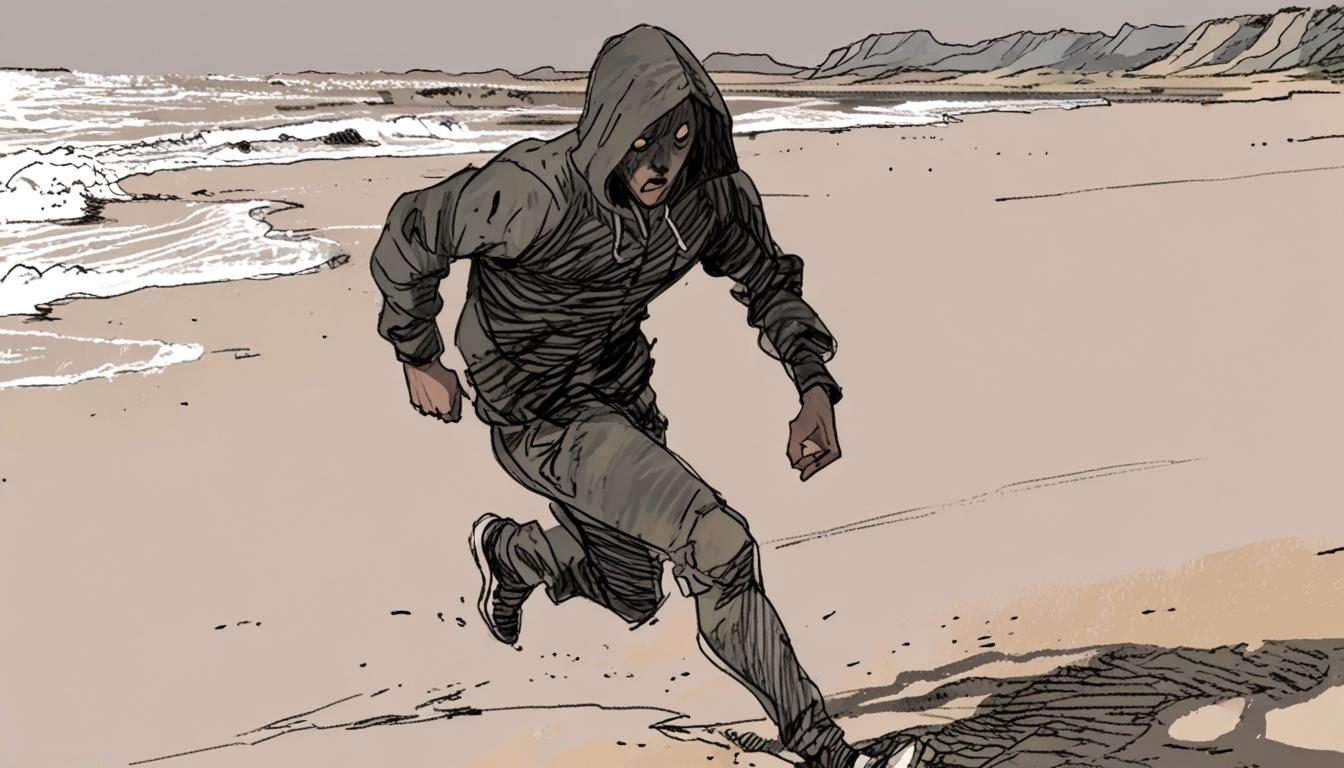Nasen Saadi, a 21-year-old criminology student, has been sentenced to a minimum of 39 years’ imprisonment for the murder of Amie Gray, 34, and the attempted murder of Leanne Miles, 38 on Bournemouth beach. The attacks occurred on the night of 24 May 2024 and were characterised as brutal and premeditated.
Saadi's violent actions took place on a summer evening when he approached Gray and Miles as they sat by a fire on Durley Chine Beach. Witnesses reported hearing two loud screams, and despite the prompt response of emergency services, Gray succumbed to her injuries, having been stabbed ten times, including a fatal wound to her heart. Miles, who was also attacked and sustained 20 knife wounds, managed to call for help.
During the investigation, police encountered considerable challenges as Saadi had left no DNA or forensic evidence at the scene. Detective Inspector Mark Jenkins, leading the investigation, remarked that it was the most challenging case he had to handle. Yet a breakthrough came when officers reviewed CCTV footage that revealed a hooded figure fleeing the scene, marked by distinctive clothing, including a grey-striped jacket.
Key to the investigation was the testimony of Mick Priddle, an amateur photographer who had been present on the bluffs capturing the Blood Moon. He provided a description of a man he had seen moments before the attacks, later identifying Saadi confidently in a police line-up. “He just looked evil,” Priddle stated of his encounter with Saadi, underscoring the fearfulness he perceived from the young man.
Delving into Saadi’s background revealed alarming patterns. He had previously expressed troubling ideas about fear and violence, at times asking unsettling questions during lectures related to his criminology studies. His lecturers noted that he had raised queries about murder and self-defence, with Dr. Lisa-Maria Reiss directly questioning him about any serious intentions behind such inquiries, to which he never provided a clear answer.
Additionally, police unearthed Saadi’s online activities, which included searches for information related to committing murder and evading detection by law enforcement. He had amassed a collection of knives at his home and had been accused of stalking just months prior to the attacks, indicating a pattern of concerning behaviour.
Throughout the trial at Winchester Crown Court, prosecutors portrayed Saadi as a young man driven by a desire to exert power and instill fear in women, a notion supported by his apparent misogynistic tendencies. The prosecution indicated that his conduct and statements pointed to an evident disdain for women.
Saadi’s defence painted a different picture, suggesting he was a social misfit with low self-esteem who struggled to connect with peers. His solicitor, Charles Sherrard, described him as someone who had been largely overlooked by those around him, adding that his growing fixation on violent themes in media may have influenced his crimes.
Despite his relentless denials of any involvement in the murders, the weight of evidence presented during the nine-day trial was sufficient to secure a conviction. Saadi received a life sentence, with the judge reaffirming the need for substantial time behind bars to reflect the severity of his actions.
The police investigation demonstrated notable teamwork and determination, with officers utilising surveillance footage and witness statements to build a case amidst a lack of tangible forensic links to the crime. The outcome has been a point of pride for the Dorset Police, as Det Insp Jenkins expressed gratitude to his team for their relentless pursuit of justice in a case marked by tragedy and sudden violence.
As the community grapples with the aftereffects of the attacks, reflection on the dynamics of safety and fear, particularly concerning women, continues to linger in the aftermath of this horrific incident.
Source: Noah Wire Services
